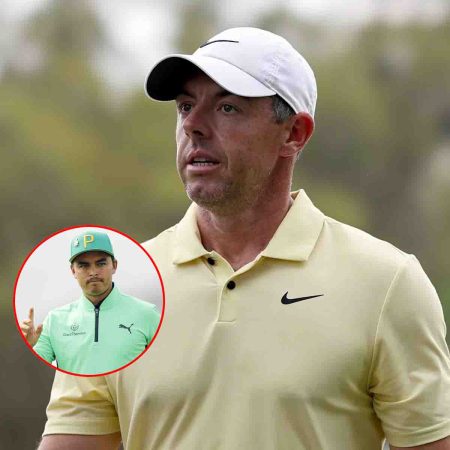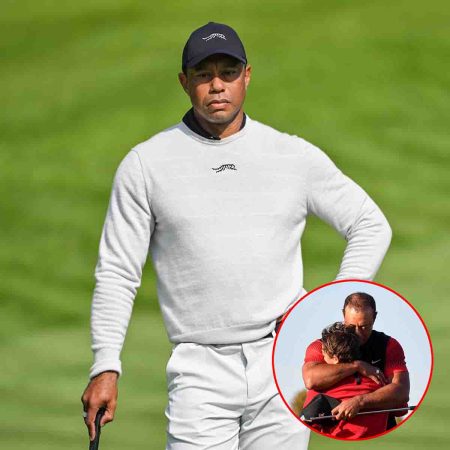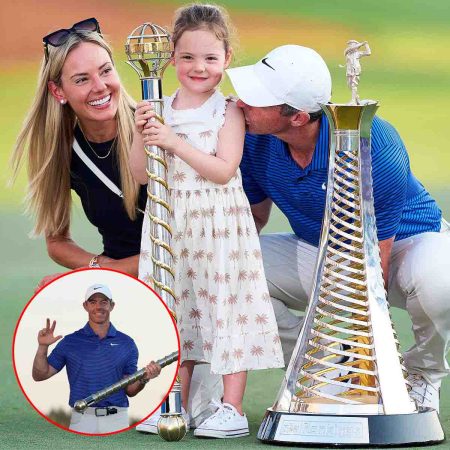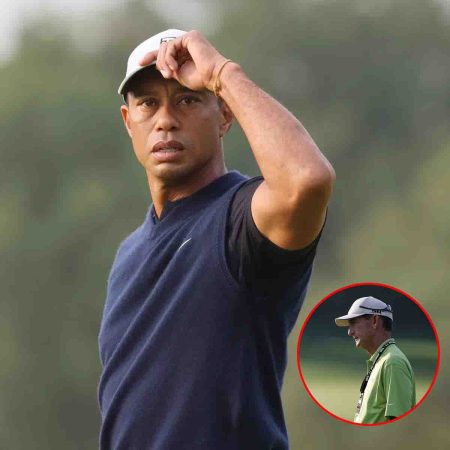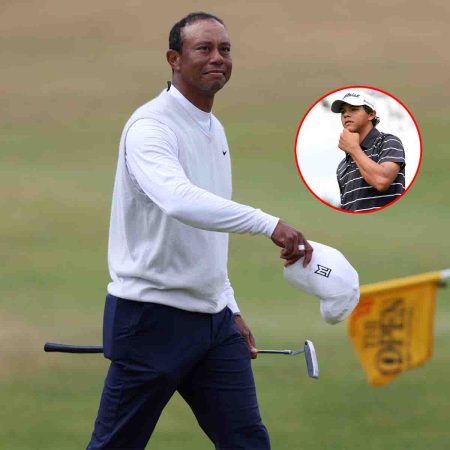Winning an award in the NBA is something special. If you think back to the start of the league, a maximum of 75 players have ever been named the most valuable player. If you throw in the other awards, it’s probably safe to say that a small percentage of players have ever been truly honored. That is the point, though. The NBA is not a participation trophy league. It features professionals that are in the top percent of the world playing a game that many wished they could play in front of thousands of people 82 times a year.
Many times, a player is drafted by a team. There are seven decades worth of draft classes. Some of those classes feature some of the best scorers we have ever seen. Pure and simple, some draft classes are better than others. We can prove that further by looking at the award distribution. In this scenario, we used six awards to measure the draft classes.
Here are the guidelines. The awards for Most Valuable Player, Defensive Player of the Year, Rookie of the Year, Sixth Man, Coach of the Year, and Finals MVP were calculated. A player must have been drafted to be included in the NBA draft class. That means that players like Ben Wallace (undrafted) and Moses Malone (ABA Draft) were not counted. Any other undrafted or ABA draft players were not eligible despite coming into the league at that time.
Here are the most awards by NBA draft class.
*NBA Draft Classes with 6 total awards: 1954, 1959, 1982, 1985, 1999, 2000, 2005, 2007, 2009, 2011, 2014
10T. 1956 NBA Draft Class – 7 Awards
Most Valuable Player – 5 Awards (Bill Russell 5)
Rookie of the Year – 1 Award (Tom Heinsohn)
Coach of the Year – 1 Award (Tom Heinsohn)
This draft class would have been moved up the ladder had Defensive Player of the Year been available to win during the prime years of Russell. How many DPOYs would Russell have won, you think? Could he have won at least four like Dikembe Mutombo and Ben Wallace? If so, this class would have been one of the few to have double-digit winners. Russell did win five MVPS to help carry this class. After all, he was one of the best rebounders of his time, averaging at least 20 rebounds per game for 10 consecutive seasons.
Russell’s teammate Tom Heinsohn won a championship during his first season when he was the best rookie in the league. With 16.2 points and 9.8 rebounds, he easily won Rookie of the Year. He played his entire career with the Celtics and then came back to coach the team in 1969 after retiring in 1965. Heinsohn won two championships during his tenure in 1974 and 1976.
10T. 1986 NBA Draft Class – 7 Awards
Defensive Player of the Year – 2 Awards (Dennis Rodman 2)
Rookie of the Year – 1 Award (Chuck Person)
Sixth Man of the Year – 2 Awards (Roy Tarpley, Dell Curry)
Most Improved Player -2 Awards (Kevin Duckworth, Scott Skiles)
In back-to-back years, Rodman was the top defensive player in the league. In 1990, Rodman was a part of the championship Pistons squad. He averaged 8.8 points and 9.7 rebounds but was known for his defensive presence inside. He won again in 1991 when he averaged 12.5 rebounds and once again as a defensive enforcer. Roy Tarpley won the Sixth Man Award in 1988 when he averaged 13.5 points and 11.8 rebounds off of the bench. Curry won in 1994 when he averaged a career-high 16.3 points in zero starts in 82 games.
In 1988, Duckworth went from averaging 6.0 points in a reduced role to 15.8 points in a starter role. Skiles was in a similar position when he went from averaging 7.7 points and 4.8 assists to 17.2 points and 8.4 assists in 1991. Person was the top rookie in 1987 after averaging 18.8 points and 8.3 rebounds in his first season.
10T. 2004 NBA Draft Class – 7 Awards
Finals MVP – 1 Award (Andre Iguodala)
Defensive Player of the Year – 3 Awards (Dwight Howard 3)
Rookie of the Year – 1 Award (Emeka Okafor)
Sixth Man of the Year – 2 Awards (Ben Gordon, J.R. Smith)
Before winning Finals MVP in 2015, Iguodala was already an All-Defensive specialist and All-Star. With the Warriors, he won the award of Stephen Curry after playing solid defense on LeBron James and scoring the second-most points per game during the series. Speaking of defense, Dwight Howard won three consecutive years from 2009 to 2011. Howard led the league in blocks with 2.9 in 2009 and 2.8 in 2010. In both years, he led the league in rebounding. In 2011, he did not lead the league but averaged 14.1 rebounds and 2.4 blocks.
Emeka Okafor, the No. 2 overall pick in 2003, was the top rookie with Charlotte after averaging 15.1 points and 10.9 rebounds in 73 starts. Gordon won the Sixth Man Award as a rookie in 2005. In 82 games, three starts only, Gordon averaged 15.1 points and shot 40.5% from three-point range. J.R. Smith won in 2013 in 80 games, no starts, after averaging a career-high 18.1 points and 5.3 rebounds.
10T. 2008 NBA Draft Class – 7 Awards
Most Valuable Player – 2 Awards (Derrick Rose, Russell Westbrook)
Rookie of the Year – 1 Award (Derrick Rose)
Sixth Man of the Year – 1 Award (Eric Gordon)
Most Improved Player – 3 Awards (Kevin Love, Ryan Anderson, Goran Dragic)
With MVPs and improved players, the 2008 draft class made the top 10. Leading the way were some of the top picks in 2008. Rose, the No. 1 pick, became the youngest player in league history to win the MVP at 22 years old. In 2011, Rose averaged 25.0 points, 4.1 rebounds, and 7.7 assists. Westbrook, the No. 4 overall pick, won the MVP in 2017 when he became the first player since Oscar Robertson to average a triple-double by posting 31.6 points, 10.7 rebounds, and 10.4 assists per game.
Rose won the Rookie of the Year in 2009 with a line of 16.8 points and 6.3 assists. Gordon was a top sixth man in 2017 when he averaged 16.2 points and shot 37.2% from three-point range in 75 games, 15 starts. Out of the three Most Improved Players, Love made the biggest jump in 2011 when he went from 14.0 points and 11.0 rebounds to 20.2 points, an All-Star selection, and led the league in rebounding with 15.2 per game.
7T. 1978 NBA Draft Class – 8 Awards
Most Valuable Player – 3 Awards (Larry Bird 3)
Finals MVP – 2 Awards (Larry Bird 2)
Rookie of the Year – 2 Awards (Phil Ford, Larry Bird)
Coach of the Year – 1 Award (Larry Bird)
Larry Bird put the 1978 draft class on notice by carrying the class with seven of the eight awards. Bird remains the last player to win three consecutive MVPs from 1984 to 1986. In that run, he led the league in free-throw percentage two times, minutes per game once, and averaged at least 24 points and 9.8 rebounds per game. During that span, he captured two Finals MVP Awards as well.
In his rookie season, Bird averaged 21.3 points and 10.4 rebounds, so that must have been the precursor to his overall success. After playing, Bird became the eventual head coach of the Indiana Pacers in 1997. He led the Pacers to a 58-24 record in his first season despite not having coaching experience. He was named Coach of the Year and pushed the Bulls to seven games in the Conference Finals. Meanwhile, Phil Ford was named Rookie of the Year in 1979 despite being the No. 2 overall pick in 1978. His first season in the league was the 1978-79 season with Kansas City, averaging 15.9 points and 8.6 assists.
7T. 1979 NBA Draft Class – 8 Awards
Most Valuable Player – 3 Awards (Magic Johnson 3)
Finals MVP – 3 Awards (Magic Johnson 3)
Defensive Player of the Year – 2 Awards (Sidney Moncrief 2)
It’s only fitting that the 1978 and 1979 draft classes won the same amount of awards. After all, Bird and Johnson were rivals in the 80s. Both were competing for MVPs and championships. The Lakers and Celtics were the franchises to be during that time In 1984, 1985, and 1986, Bird was the league MVP. In 1987, 1989, and 1990, Johnson then won the Finals MVP in 1980, 1982, and 1987. If you break it down, Johnson won about half of the “best player” awards in some capacity for half of a decade.
The other member of the class featured one of the best two-way players of the decade. Moncrief won in back-to-back seasons in 1982 and 1983. In 1982, Moncrief averaged 19.8 points, 6.7 rebounds, 4.8 assists, and 1.7 steals. The following season, Moncrief averaged a career-high 22.5 points, 5.8 rebounds, 3.9 assists, and 1.5 steals.
7T. 1992 NBA Draft Class- 8 Awards
Most Valuable Player – 1 Award (Shaquille O’Neal)
Finals MVP – 3 Awards (Shaquille O’Neal 3)
Defensive Player of the Year – 2 Awards (Alonzo Mourning 2)
Rookie of the Year – 1 Award (Shaquille O’Neal)
Most Improved Player of the Year – 1 Award (Don MacLean)
Shaquille O’Neal carried this draft class to seven awards in total. Five awards from O’Neal highlight the 1992 draft class. O’Neal won the MVP Award in 2000 and then doubled down to win the Finals MVP that season. O’Neal won the Finals MVP Award three consecutive years when the Lakers three-peated from 2000 to 2002. O’Neal captured the Rookie of the Year Award in 1993 when was also an All-Star with the Orlando Magic, who drafted him No. 1 overall in 1992.
Mourning was the back-to-back Defensive Player of the Year in 1999 and 2000. In 1999, Mourning led the league with 3.9 blocks and added a career-high 11.0 rebounds. In 2000, Mourning led the league in blocks again with 3.7 per game and had 9.5 rebounds. Don MacLean was named Most Improved in 1994 when he jumped from 6.6 points and 2.0 rebounds in his rookie season to 18.2 points and 6.2 rebounds in his second year with the Wizards.
5T. 1996 NBA Draft Class – 9 Awards
Most Valuable Player – 4 Awards (Steve Nash 2, Allen Iverson, Kobe Bryant)
Finals MVP – 2 Awards (Kobe Bryant 2)
Defensive Player of the Year – 1 Award (Marcus Camby)
Rookie of the Year – 1 Award (Allen Iverson)
Most Improved Player – 1 Award (Jermaine O’Neal)
5T. 1997 NBA Draft Class – 9 Awards
Most Valuable Player – 2 Awards (Tim Duncan 2)
Finals MVP – 4 Awards (Tim Duncan 3, Chauncey Billups)
Rookie of the Year – 1 Award (Tim Duncan)
Sixth Man of the Year – 1 Award (Bobby Jackson)
Most Improved Award – 1 Award (Tracy McGrady)
Four Finals MVP Awards headline this draft class. After all, of the eight awards earned from this class, half of them came in a championship. Duncan led the way with three awards, winning in 1999, 2003, and 2005. Duncan also won titles in 2007 and 2014 but was not the Finals MVP. There was a two-year stretch where Duncan was the best player in the league as well, winning in 2002 and 2003. With the Spurs, you could easily count that Duncan was going to produce a 20 and 10 season. That includes his rookie season when he averaged 21.1 points and 11.9 rebounds.
The other winner of a Finals MVP was Chauncey Billups, the 2004 winner. Both of these players met in the 2005 NBA Finals, where Duncan was named the best. The year before, Billups led the Pistons to a surprise win over the Lakers. Two other members of the class won awards. Jackson was the top sixth man in 2003, averaging a career-high 15.2 points in 59 games. McGrady was named Most Improved in 2001 when he made the jump from 15.4 points and 6.3 rebounds to 26.8 points and 7.5 rebounds.
4. 1969 NBA Draft Class – 10 Awards
Most Valuable Player – 6 Awards (Kareem Abdul-Jabbar 6)
Finals MVP – 3 Awards (Kareem Abdul-Jabbar 2, Jo Jo White)
Rookie of the Year – 1 Award (Kareem Abdul-Jabbar)
It should be noted that nine of the 10 awards came from the great Kareem Abdul-Jabbar. Jo Jo White added to the total, but we will get to him in a moment. Let’s honor the man who held the all-time scoring mark for decades. Abdul-Jabbar won three MVPs as a member of the Bucks. After winning Rookie of the Year with a line of 28.8 points and 14.5 rebounds, Abdul-Jabbar won the league MVP in his second season. He led the league in scoring with 31.7 points and added 16.0 rebounds. He won again in 1972 after leading the league in scoring with 34.8 points and 16.6 rebounds.
Three more awards came with the Lakers, where he won five total championships. His first title came in 1971 when he led the Bucks to their first title ever, where he was named Finals MVP. Abdul-Jabbar won Finals MVP again in 1985 when he averaged 25.7 points and 9.0 rebounds. White claimed the Finals MVP in 1976 when he led the Celtics to a title, averaging 21.7 points, 4.3 rebounds, and 5.8 assists.
3. 2013 NBA Draft Class – 11 Awards
Most Valuable Player – 2 Awards (Giannis Antetokounmpo 2)
Finals MVP: 1 Award (Giannis Antetokounmpo)
Defensive Player of the Year – 4 Awards (Rudy Gobert 3, Giannis Antetokounmpo)
Rookie of the Year – 1 Award (Michael Carter-Williams)
Most Improved Player – 3 Awards (CJ McCollum, Giannis Antetokounmpo, Victor Oladipo)
Defense is the name of the game when it comes to this class. One-third of the awards came from the Defensive Player of the Year. By the end of his career, Rudy Gobert might tie the record for most selections. Gobert won the award in 2018, 2019, and 2021. During those times, Gobert averaged at least 10 rebounds and two blocks per game. Last year, Gobert averaged a league-leading 14.7 rebounds with 2.1 blocks but did not win the award.
Giannis Antetokounmpo won a DPOY of his own, but two MVP Awards and a Finals MVP. Giannis was the back-to-back MVP in 2019 and 2020. He averaged 27.7 points, 12.5 points, and a career-high 5.9 assists in 2018-19. Then, he averaged 29.5 points, 13.6 rebounds, and 5.6 assists in 2019-20. Antetokounmpo’s Finals MVP in 2021 was capped with a 50-point game in Game 6 of the Finals. Giannis won his Most Improved Award in 2017 after jumping to a 22.9-point scorer. CJ McCollum won in 2016 after jumping from 6.8 points per game to 20.8 points in his third season. Victor Oladipo won in 2018 after jumping from 15.9 points to a career-high 23.1 points while also leading the league in steals with 2.4 per game. Micahel Carter-Williams was the top rookie after getting drafted No. 11 overall.
2. 2003 NBA Draft Class – 12 Awards
Most Valuable Player – 4 Awards (LeBron James 4)
Rookie of the Year – 1 Award (LeBron James)
Sixth Man of the Year – 1 Award (Leonardo Barbosa)
Most Improved Player – 1 Award (Boris Diaw)
Finals MVP – 5 Awards (LeBron James 4, Dwyane Wade)
Like most great players, the 2003 draft class is headlined by a special player. LeBron James owns nine of the total 12 awards won. That begins with four MVPs and four Finals MVPs. James won the regular season MVP in 2009 and 2010 as a member of the Cavaliers and then two more in back-to-back seasons with the Heat in 2012 and 2013. Of his four championships, James was named Finals MVP in 2012, 2013, 2016, and 2020. That includes winning with three franchises (Heat, Cavaliers, and Lakers).
James was destined for greatness when he averaged 20.9 points, 5.5 rebounds, and 5.9 assists in his rookie season. He eventually won two titles with Dwyane Wade, the 2006 Finals MVP. After losing the first two games to the Mavericks, Wade helped the Heat win four straight, a Finals where Wade averaged 34.7 points, 7.8 rebounds, and 3.8 assists. Among other award winners, Barbosa won the Sixth Man Award in 2007 after averaging a career-high 18.1 points with the Suns.
1. 1984 NBA Draft Class – 24 Awards
Most Valuable Player – 7 Awards (Michael Jordan 5, Charles Barkley, Hakeem Olajuwon)
Finals MVP – 8 Awards (Michael Jordan 6, Hakeem Olajuwon 2)
Defensive Player of the Year – 4 Awards (Hakeem Olajuwon 2, Alvin Robertson, Michael Jordan)
Rookie of the Year – 1 Award (Michael Jordan)
Most Improved Player – 1 Award (Alvin Robertson)
Coach of the Year – 1 Award (Rick Carlisle)
The 1984 draft class will forever go down as the greatest, and the numbers back it up. Fifteen of those awards come from MVPs and Finals MVPs. Michael Jordan’s claim to fame will always be backed up as well, owning 11 of those 15 awards. Of the 24 total awards, Jordan owns 13 of the awards between MVPs, Finals MVPs, Rookie of the Year, and Defensive Player of the Year. Jordan’s time with the Bulls was headlined by two three-peats from 1991 to 1993 and 1996 and 1998. Joining him among the league’s best, Hakeem Olajuwon won the MVP and Finals MVP in 1994 and then won another Finals MVP in 1995. Charles Barkley rounds out the MVPs with one of his own in 1993.
Among other award winners, Olajuwon was the league’s top defensive player when he led the league in blocks with 4.2 per game. He won in 1994 with 13.0 rebounds and 3.7 blocks. Alvin Robertson was the DPOY in 1986 when he set a league record for single-season steals with 3.7 per game. Robertson was the Most Improved Player that same season when he jumped from 9.2 points, 3.4 rebounds, 3.5 assists, and 1.6 steals his rookie season to 17.0 points, 6.3 rebounds, 5.5 assists, and 3.7 steals. Rounding out the class, Rick Carlisle was the 70th overall pick in the draft and played briefly in the league. He became a future Coach of the Year with the Pistons in 2002. In the end, this class owns the most hardware and doubles the next class up.
Source: fadeawayworld




